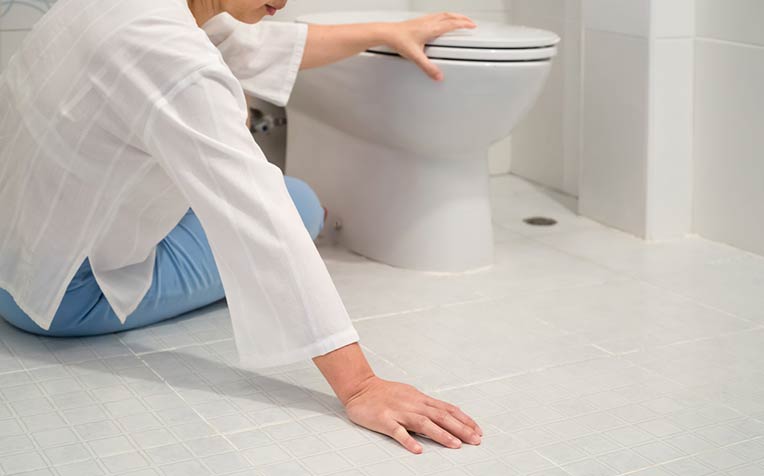
After a fall , if you are not hurt and able to get up, move or crawl towards the nearest piece of stable furniture and use it for support.
Not all falls are preventable. But knowing what to do when a fall happens can lessen your fear of falling. The Geriatric Centre at Changi General Hospital (CGH), a member of the SingHealth group, advises "if you fall, get up (if you can) or get help as soon as possible". Lying on the floor for long periods can lead to serious complications. This includes:
- Dehydration
- Hypothermia (a low body temperature that may result in death if not treated)
- Lung infection
- Skin breakdown and pressure sores
- Muscle damage
If you are at risk of falling, learn the strategy for getting up, either on your own or with someone else’s (such as your carer’s) help.
What to do when a fall occurs
If you have fallen, stay calm and do the following:
- Move your body, arms and legs to check for pain and injury
If you are in pain and unable to move:
- Try to get someone’s attention by calling out or banging on the floor or the wall. If you are able to, move or crawl to a telephone and dial for assistance
- Sit or lie down on the floor in a comfortable position until help arrives
If you are not hurt and are able to get up:
- Pace yourself and do not get up too quickly
- Roll onto your hands and knees, and move or crawl towards the nearest piece of stable furniture, such as a chair or a bed
- Hold on to the furniture with both hands to support yourself
- Place one foot flat on the floor and bend one knee in front of your body
- Use your other foot and your arms to brace yourself
- When you feel ready, get up slowly
- Sit down and rest until you feel strong enough to call for help. Seek medical help if needed
Ref: O17
Learn the common causes of falls in the elderly and how to prevent them.
Contributed by
Conditions & Treatments
Public Events
Get the Health Buddy App
© 2025 SingHealth Group. All Rights Reserved.














 Get it on Google Play
Get it on Google Play